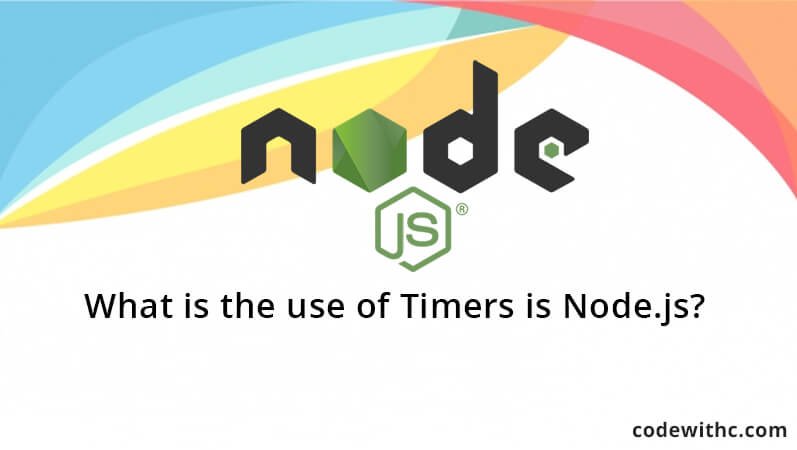Node.js Timers
The Timers module in Node.js has a bunch of functions that execute code after a defined time-frame. Timers don’t have to be initialized through the conventional require(), since every one of the strategies are accessible globally according to the JavaScript API in the browser. To completely comprehend when timer functions will be executed, reading up on the Nodejs Event loop will be a good idea
Managing the Time Continuum with Node.js
The Node.js API gives a few methods for organizing code to execute sometime after the present minute. The functions listed below may appear familiar, considering the fact that they are accessible in many browsers; however Node.js specifically defines its own usage of these strategies. Timers incorporate closely with the framework, and regardless of the way the API reflects the program API, there are a few contrasts in execution.
setTimeout()
setTimeout() can be utilized to organize code execution after an assigned measure of milliseconds. This function is like window.setTimeout() in the JavaScript API of the browser, however a string of code can’t be passed so it can be executed.
setImmediate()
setImmediate() will execute code toward the end of the present cycle of event loops. This code will be executed after any I/O processes in the present event loop and preceding any timers prepared for the following event loop. The execution of this code could be considered as occuring “directly after this”, which means any code after the setImmediate() function call will execute before the setImmediate() function.
setInterval()
In a scenario where there is a block of code that ought to executed several times, setInterval() can be utilized to execute that code. setInterval() takes the argument of a function that will be executed an unbounded number of times according toa given millisecond delay as the next argument. Just likesetTimeout(), extra contentions can be included past the postponement, and these will be passed on to the function call. Additionally like setTimeout(), the deferral can’t be ensured on account of operations that may clutch the event loop, and as a result ought to be dealt with as a definite delay.
[vc_row][vc_column][td_block_21 separator=”” tag_slug=”node-js” limit=”40″ tdc_css=””][/vc_column][/vc_row]
